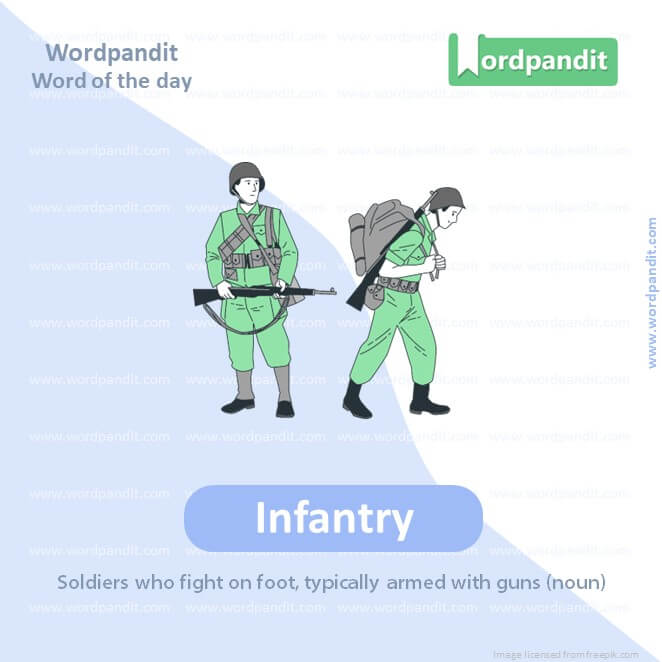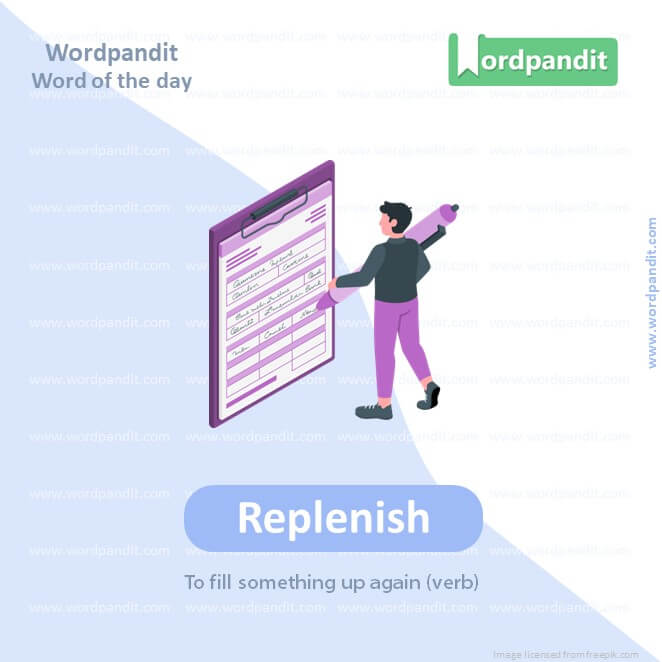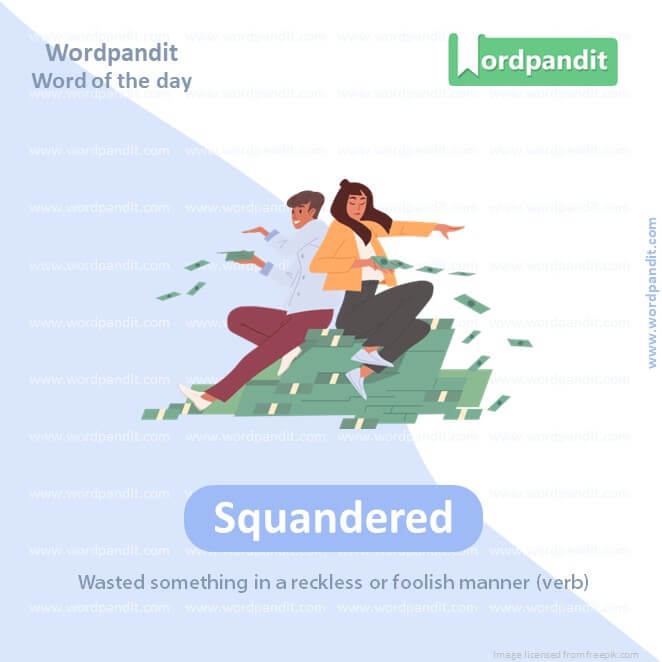Daily Vocabulary Words: List of Daily Used Words in Leading International Newspapers
Hi there. Welcome to this special section @ Wordpandit.
Our endeavour here is very simple: to highlight important daily vocabulary words, which you would come across in leading newspapers in the country. We have included the following newspapers in our selection:
• The New York Times
• The Washington Post
• Scientific American
• BBC
• The Guardian
• Psychology Today
• Wall Street Journal
• The Economist
We are putting in extensive work for developing your vocabulary. All you have got to do is be regular with this section and check out this post on a daily basis. This is your repository of words that are commonly used and essentially, we are posting a list of daily used words. Hence, this has significant practical application as it teaches you words that are used commonly in leading publications mentioned above.
Visit the website daily to learn words from leading international newspapers.

WORD-1: Infantry
CONTEXT: British forces considered 22 weeks of infantry training the minimum before a soldier was ready to join a unit, where they would then carry out collective training as part of a battalion.
SOURCE: Guardian
EXPLANATORY PARAGRAPH: ‘Infantry’ is a group of soldiers who fight on foot, like in the movies where soldiers march and carry their weapons. They walk together and work as a team to protect and fight.
MEANING: Soldiers who fight on foot, typically armed with guns (noun).
PRONUNCIATION: in-fuhn-tree
SYNONYMS: Foot soldiers, Ground troops, Infantrymen, Riflemen, Grunts
USAGE EXAMPLES:
1. The infantry advanced into the battlefield.
2. He served in the infantry during the war.
3. The infantry was deployed to the front lines.
4. The training for the infantry is rigorous.

WORD-2: Repertoire
CONTEXT: European Nato must expand and extend the training support provided in order to give Ukrainian units a wider tactical repertoire, and more importantly expand the scale at which the army can command and synchronise operations.
SOURCE: Guardian
EXPLANATORY PARAGRAPH: ‘Repertoire’ is like a big box where a performer keeps all the songs, dances, or plays they know. It’s all the things they can do or perform.
MEANING: The collection of skills, performances, or works that someone or something can produce or perform (noun).
PRONUNCIATION: rep-er-twahr
SYNONYMS: Collection, Range, Arsenal, Inventory, Selection, Array
USAGE EXAMPLES:
1. The musician added new songs to her repertoire.
2. The chef’s repertoire of recipes is impressive.
3. The theater group performed a diverse repertoire.
4. He expanded his repertoire to include classical pieces.
WORD-3: Synchronise
CONTEXT: European Nato must expand and extend the training support provided in order to give Ukrainian units a wider tactical repertoire, and more importantly expand the scale at which the army can command and synchronise operations.
SOURCE: Guardian
EXPLANATORY PARAGRAPH: ‘Synchronise’ means making things happen at the same time. Like when you and your friend jump together or when clocks show the same time.
MEANING: To cause to occur or operate at the same time or rate (verb).
PRONUNCIATION: sin-kruh-nyz
SYNONYMS: Coordinate, Align, Match, Harmonize, Simultaneous, Time
USAGE EXAMPLES:
1. We need to synchronise our watches.
2. The dancers synchronise their movements.
3. They tried to synchronise their schedules.
4. The software helps to synchronise data across devices.

WORD-4: Replenish
CONTEXT: A failure to do so now could leave European leaders needing to deter a fully mobilised Russia without stockpiles or the capacity to replenish them.
SOURCE: Guardian
EXPLANATORY PARAGRAPH: ‘Replenish’ is like when you fill up your water bottle after drinking all the water. It means to fill something up again when it gets empty.
MEANING: To fill something up again (verb).
PRONUNCIATION: reh-plen-ish
SYNONYMS: Refill, Restock, Renew, Reload, Top up, Resupply
USAGE EXAMPLES:
1. She replenished the bird feeder.
2. The grocery store needs to replenish its shelves.
3. After the long hike, they replenished their water supply.
4. The printer was replenished with paper.

WORD-5: Endeavouring
CONTEXT: the immediate future is one of several months of hard fighting without critical resources, while endeavouring to regenerate the combat power that was expended over 2023.
SOURCE: Guardian
EXPLANATORY PARAGRAPH: ‘Endeavouring’ is like trying really hard to do something. Like when you are learning to ride a bike and you keep trying even if it’s hard.
MEANING: Trying hard to do or achieve something (verb).
PRONUNCIATION: en-dev-er-ing
SYNONYMS: Attempting, Striving, Trying, Working, Struggling, Aspiring
USAGE EXAMPLES:
1. She is endeavouring to learn a new language.
2. He was endeavouring to finish the project on time.
3. They are endeavouring to find a cure.
4. The team is endeavouring to improve their performance.

WORD-6: Squandered
CONTEXT: But European security must not be squandered by more complacency.
SOURCE: Guardian
EXPLANATORY PARAGRAPH: ‘Squandered’ is like when you have a lot of candy but eat it all too fast and then have none left. It means using something carelessly or wastefully.
MEANING: Wasted something in a reckless or foolish manner (verb).
PRONUNCIATION: skwon-derd
SYNONYMS: Wasted, Misused, Dissipated, Blown, Frittered away, Misspent
USAGE EXAMPLES:
1. He squandered his inheritance on expensive holidays.
2. They squandered a great opportunity.
3. The money was squandered on unnecessary things.
4. She squandered her talent by not practicing.
WORD-7: Starvation
CONTEXT: the economist and philosopher Amartya Sen showed that social organisation and a lack of access to food for socially deprived people were the real causes of starvation.
SOURCE: Guardian
EXPLANATORY PARAGRAPH: ‘Starvation’ means being very hungry because you don’t have enough food to eat for a long time. It’s like when you miss lunch and feel really, really hungry, but for much longer.
MEANING: Suffering or death caused by lack of enough food (noun).
PRONUNCIATION: star-vay-shun
SYNONYMS: Hunger, Famine, Malnutrition, Undernourishment, Food scarcity
USAGE EXAMPLES:
1. The famine led to widespread starvation.
2. Many animals face starvation in the winter.
3. The campaign aims to prevent starvation.
4. Starvation is a severe problem in some areas.
WORD-8: Destitution
CONTEXT: Among adults, 2.8 million were in destitution because of inability to afford these six basics.
SOURCE: Guardian
EXPLANATORY PARAGRAPH: ‘Destitution’ is when someone has nothing at all, like no food, no home, no clothes. It’s like being very, very poor and needing help.
MEANING: Extreme poverty where one lacks the basic necessities of life (noun).
PRONUNCIATION: des-ti-too-shun
SYNONYMS: Poverty, Penury, Indigence, Need, Pauperism, Impoverishment
USAGE EXAMPLES:
1. The family lived in destitution.
2. The war left many people in destitution.
3. Charities work to alleviate destitution.
4. Destitution forced him to ask for help.
WORD-9: Dreading
CONTEXT: I was dreading the trip, even as I understood that I was very lucky to be able to take it.
SOURCE: Guardian
EXPLANATORY PARAGRAPH: ‘Dreading’ is when you feel really scared about something that is going to happen. Like feeling scared about going to the doctor or worrying about a test.
MEANING: Feeling anxious or worried about something that is going to happen (verb).
PRONUNCIATION: dred-ing
SYNONYMS: Fearing, Worrying, Anticipating with fear, Apprehending, Being apprehensive
USAGE EXAMPLES:
1. She was dreading the long drive home.
2. He’s dreading the final exams.
3. I’m dreading the meeting with the boss.
4. They were dreading the outcome of the decision.
WORD-10: Precise
CONTEXT: Precise estimates are risky but taken together, native and non-native speakers in the world total between 1 billion and 1.5 billion, depending on the definition of “speaker”.
SOURCE: Guardian
EXPLANATORY PARAGRAPH: ‘Precise’ is like being very exact and careful about something. Like when you color inside the lines very carefully, not going out even a little bit.
MEANING: Marked by exactness and accuracy of expression or detail (adjective).
PRONUNCIATION: pre-syse
SYNONYMS: Accurate, Exact, Specific, Detailed, Pinpoint, Meticulous
USAGE EXAMPLES:
1. She gave a precise description of the thief.
2. The machine parts must be made to precise measurements.
3. He is known for his precise work.
4. The chef used precise amounts of each ingredient.
Vocabulary Daily Use
In the fascinating world of language learning, we often concentrate on taking giant leaps, but the real magic lies in the small steps of ‘vocabulary daily use’. These frequently used words and phrases form the backbone of practical communication and understanding. Therefore, mastering ‘vocabulary daily use’ is a crucial element in achieving language fluency.
To effectively learn ‘vocabulary daily use’, one needs to venture beyond the traditional textbook resources. The real essence of these words unveils itself in everyday exposure and interactions. Engaging with a variety of material like novels, magazines, newspapers, podcasts, films and digital content deepens the understanding of ‘vocabulary daily use’. Immersion in these contexts yield natural, everyday language that bridges the gap between the classroom and the real world.
The journey of mastering ‘vocabulary daily use’ necessitates the integration of innovative memory techniques. Flashcards and the Leitner System aid in embedding these words into your long-term memory by promoting active recall. Additionally, the use of mnemonic devices, which allow you to associate ‘vocabulary daily use’ with personal and familiar narratives, can enhance your ability to remember and recall these words.
Moreover, it’s important to remember that ‘vocabulary daily use’ isn’t just about comprehension- it’s about practice and active usage. Incorporate these words in your day-to-day communication and social interactions. This not only solidifies your understanding but also accelerates learning and internalization of ‘vocabulary daily use’.
In a nutshell, mastering ‘vocabulary daily use’ is a continual process that demands exposure, creative learning strategies and assertive practice. The commingling of these tactics brews the perfect formula that allows learners to seamlessly integrate ‘vocabulary daily use’ into their linguistic repertoire. And with that, they can navigate the nuances of language with confidence and ease.







